As we move past the six month mark of the Arts Fundraising Fellowship and as the new Fellows for 2015-2016 are soon to be recruited, I thought now would be a perfect time to reflect on my Fellowship so far.
As I look back on the last six months, I genuinely have a smile on my face because I really have had a great experience on the Fellowship and in my host organisation at Poole Lighthouse. I’ve not stopped learning and developing and, although it’s certainly been a challenge, I can look back now and think, Yes! I’m actually a fundraiser and I am raising real cash that’s going to make an actual difference to Lighthouse and the future of the arts in Poole.
The reason that the Fellowship is so successful is because of the breadth of training we have each month and because we’re given the space to apply this learning for real in our organisations. If I could work like this forever I would - it makes me constantly look at ways to improve myself and keep my creative juices flowing!
We have lots of support - through our managers, Cause4 and mentors, not to mention each other! The Fellowship allows us to learn, reflect and most importantly be supported throughout; and the best part is when we’ve exhausted that (or we’ve asked enough questions that day to our managers) we can ask each other and I’ll always receive something back. All the people doing the Fellowship this year and last year are so open and willing to share; it makes a huge difference. I hope that we carry this with us in the future, with each other but also with new people in new roles.
What the new fellows can expect to learn:
The current fellows from London and the South West put our heads together to think about what the next fellows can expect from their training. We all shared the same feelings: you’ll get a greater understanding of fundraising as well as the wider arts sector, along with opportunities to hear from and network with those more experienced than yourself. You’ll develop new and existing skills, definitely build confidence and of course your career, and get to become an integral part of an organisation producing vital work within the arts.
What I’ve learnt:
I don’t quite know what’s in store for me after the Fellowship, but for now it’s great to know that I have a developed skill set that could be transferable across the arts. I think the number one learning curve for me has been the complex nature of fundraising. Before I started the fellowship, I really did assume Arts Council funding was the whole of fundraising. I had asked for in- kind support with regards to space and time in my last roles and also applied to a Foundation back in the day (not really having a clue what a Foundation even was). To think back to then and to look at what I know now (with still six months left on the Fellowship) I’ve come a long way. Because now I understand what it means to fundraise, I have skills and I’m confident to apply to Trusts and Foundations, ask for money from individuals, utilise digital fundraising, corporate sponsorship as well as looking at different kinds of public support.
But the biggest change for me has been having space to use my creativity to fundraise. Before, I saw fundraising as writing applications and waiting to hear back to find out if I’ve received any money (at times, it also felt like the least creative part of an arts organisation). Now with all the tools I’ve collected on the way through the Fellowship I don’t just see fundraising as money. I look at it as a way to make organisations run, projects to happen and artists to create work, and ultimately enable people to experience the arts. Once you know how to fundraise you can start to look at making it fun for people, creating stories, getting people to invest in the importance of the arts as integral to sustaining the arts. You need to know how and why something needs money, and then you can start to work at making it a reality. I’ve also been able to see the workings of what makes organisations function well and to understand the complex ecology in which fundraising for the arts sits. Ultimately, what still drives me is my passion for the arts, however, I’d like to think now I can utilise that passion to actually make a difference within the sector more widely.
A few useful resources that I’ve discovered:
Charity Commission Website: http://apps.charitycommission.gov.uk/ShowCharity/RegisterOfCharities/AdvancedSearch.aspx
Local culture and heritage profile tool:
http://old.culture.gov.uk/what_we_do/research_and_statistics/7276.aspx
Online white board (to note down ideas):
https://realtimeboard.com/index/
Michael Kaiser podcasts:
Fundraising news:
Story based strategy:






